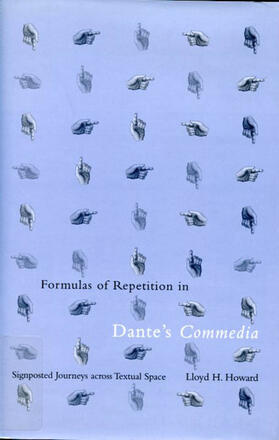
Formulas of Repetition in Dante's Commedia
Signposted Journeys Across Textual Space
Description
Formulas are usually understood as rhetorical devices that are found in close textual proximity and, because they are intended for emphasis, cannot possibly escape the notice of the reader. The formulas Howard traces in this study are far more difficult to find because they are hidden deep in the structure of the Commedia and at considerable distances from one another. For example, Howard demonstrates that when the reader notes that the formula "ne l'etterno essilio" - in eternal exile - re-occurs in Purgatorio 21 accompanied by the same rhyme words as when it first appears in Inferno 23, it is a sign that these two episodes can be linked for further interpretation, despite the 32 cantos of intervening textual space. In the most general sense it is possible to define two principle ways of approaching the Commedia: one that examines specific episodes or cantos in isolation and one that follows the overt journey of Dante the pilgrim through the three realms of the afterlife. The approach offered in Formulas of Repetition in Dante's Commedia differs from both traditional ways of reading Dante, pursuing an alternate path outside the chronology set out in the Commedia - from the dark wood to the empyrean - and outside the canto order first Inferno, then the Purgatorio, and lastly the Paradiso.
Reviews
"Howard's analysis is precise, lucid, and always enlightening. Formulas of Repetition in Dante's Commedia is an exciting piece of scholarship which offers many insights both into the workings and the meaning of Dante's text." Amilcare A. Iannucci, Centre for Comparative Literature, University of Toronto "Howard's scholarship is sound. Formulas of Repetition in Dante's Commedia is clear, accurate, and interesting, It includes detailed textual observations that have escaped the notice of earlier scholars, and incorporates them into a broader argument about Dante's textual praxis." Steven Botterill, Department of Italian Studies, University of California-Berkeley